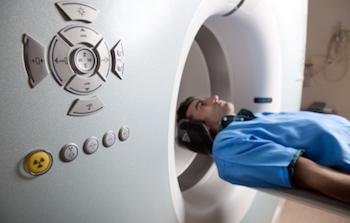New Imaging Test Could Detect Cancer Without Radiation


Currently, if a doctor believes you may have a tumor, you’ll likely be sent for a PET, CT, or MRI scan—two of which result in radiation exposure. As we know, radiation can have numerous ill effects on humans, including (ironically) increasing the risk of cancer. Well, researchers from Stanford University are currently working on an imaging test that wouldn’t use any radiation, and suggest it could be especially beneficial for children who are particularly vulnerable to these negative effects.
According to the study published in The Lancet Oncology, the new testing method uses an iron supplement to increase the visibility of tumors. Then, patients are placed in a whole-body MRI that doesn’t use the traditional amounts of radiation. The purpose: to reduce the use of radiation in patients and thereby reduce the risk of future cancers caused by the radiation.
As reported by MedicalNewsToday:
“According to the study background, ionizing radiation – high frequency radiation that has enough energy to damage cells’ DNA – in early childhood has been shown to triple the risk of lifetime cancer, compared with adults exposed to the radiation from the age of 30.
Furthermore, the investigators note that cumulative radiation exposure from diagnostic CT scans may almost triple the risk of secondary leukemia and brain cancer later in life.”
The researchers wanted to test their new imaging method and see how it’s ability to detect tumors stacked up against traditional CT and PET scans. What they found was the new radiation-free method was at or nearly as effective.
“The investigators found that the diagnostic accuracy of the whole-body MRI technique was 97.2%, compared to 98.3% in the 18F-FDG PET/CT method. The whole-body MRI also showed similar sensitivities and specificities to the 18F-FDG PET/CT, at 93.7% vs. 90.8% and 97.7% vs. 99.5%, respectively.”
They caution the system needs more testing and research before it could become a commonplace scanning alternative. But, the study is a promising one.
Only in the world of modern, conventional medicine could the very test used to detect cancer actually increase your risk of being diagnosed with secondary cancer later in life. Like so much of the modern medical industry, the “fix” is nearly as bad as the initial illness or problem. Alternative tests are absolutely needed.

The technology already exists, it’s called thermography.